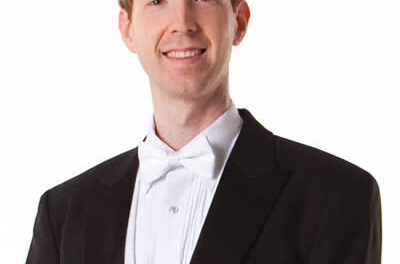“Unfathomably vile,” “undeserving to exist in civilized culture,” “a coarse and filthy affront to all but the most depraved among us.” It’s nearly inconceivable to read these quotes directed at the early works of filmmaker John Waters and his favorite actor/actress/whatever Divine and realize that this is the same person who created the wholesome, American-as-apple-pie theatrical industry known as Hairspray. On February 24th, a capacity crowd anxiously surged into the Durham Performing Arts Center for a one-performance-only, sold-out presentation of this Broadway and national touring company mega-hit.
For those who enjoy playing historical revisionism and still ascribe to the myth of Camelot, 1962 was the most perfect of years: the only full year of the Kennedy presidency. We psyched out those Commies during the Cuban missile crisis, there were no hippies yet, and certain minorities had not yet started their “troublemaking.” It was that year in the City of Baltimore when we meet Tracy Turnblad, a “plus-sized” teenager who loves her hometown and family, but most of all she loves to dance, and wants to be famous.
From the opening scene in which Tracy, played by Danielle Arci, sings “Good Morning Baltimore” from an upright bed, we can already see the fantastic set designs, costumes, and hair designs and the remarkable ensemble dancing and singing that we would experience for the next two hours and 20 minutes. The adults of the Turnblad family are mammoth, but loving. The well-meaning mother Edna, is played to the hoots and hollers of the audience by Mr. Jerry O’Boyle; and Mark A. Harmon has the great fun of portraying Wilbur, the nebbishy, nerdy father, who breaks out with some great songs and lines in the second act.
Many of the issues and portrayals are timeless: cliques, mean girls bullying those who don’t conform to their standards of beauty, teenagers asking themselves “How can I get him/her to like me?” Tracy Turnblad simply wants to dance with everyone, and that includes the “Negroes” she meets in detention. However, this is 1962 at the northern edge of the Mason-Dixon Line; and integrated dancing is simply unheard of. The fact that Tracy not only tries to win the Miss Hairspray contest as best dancer on Corny Collins’ TV show (a barely disguised depiction of Dick Clark and “American Bandstand”), but to integrate the show as well, is the charming storyline.
Hairspray is a nonstop whirlwind of candy-colored costumes, infectious energy, and blockbuster musical numbers that put it squarely in line with the great Broadway musicals of the past. The first act is considerably longer than the second; and that’s where we meet some of the great characters, including Motormouth Maybelle, owner of a record shop on “the other side of town,” played with a great big gospel-tinged voice by Debra Thais Evans. She gets right into everyone’s heart with “I Know Where I’ve Been,” one of the most poignant and lovely songs of the show. The jailhouse scenes at the end of the first act and start of the second act are quite funny; and the set design and dancing in some parts is reminiscent of “go-go girls” in such early 1960s television music shows as “Hullabaloo” and “Shindig.”
With 15 separate scenes and sub-scenes within many of these, the sets are as much the star of Hairspray as any other facet of the show; and we have David Rockwell to thank for that. There are literally no slack moments in the entire production; and director Matt Lenz nicely balances the action, although if one had to pick a drug that would best describe Hairspray, it would likely be amphetamine. With a cast numbering 38, and all of them on stage at once many times, it is a miracle of choreography and athleticism that there was not even the hint of a misstep. One of the highlights, and somewhat of a breather for everyone, was a fabulous duo between Jerry O’Boyle and Mark Harmon, as Edna and Wilbur Turnblad, on “Timeless to Me.” This old-fashioned song-and-dance number, performed in front of closed curtains, was delightful. Near the end of the show, there seemed to be some ad-libbing, and the two of them broke character and could not stop laughing.
Hairspray does its best not to beat you over the head with its messages, although in the midst of its colorful and light-hearted atmosphere, it deals with some serious issues. I was touched during intermission to overhear a woman talking to a group of children, trying to explain why those people were arrested just because they wanted to dance together. Tracy Turnblad, despite being “pleasingly plump,” clearly loves herself and possesses more self-esteem than a gaggle of anorexic models. But most of all Hairspray is just delicious fun. Maybe we’ll get a longer run next time.











